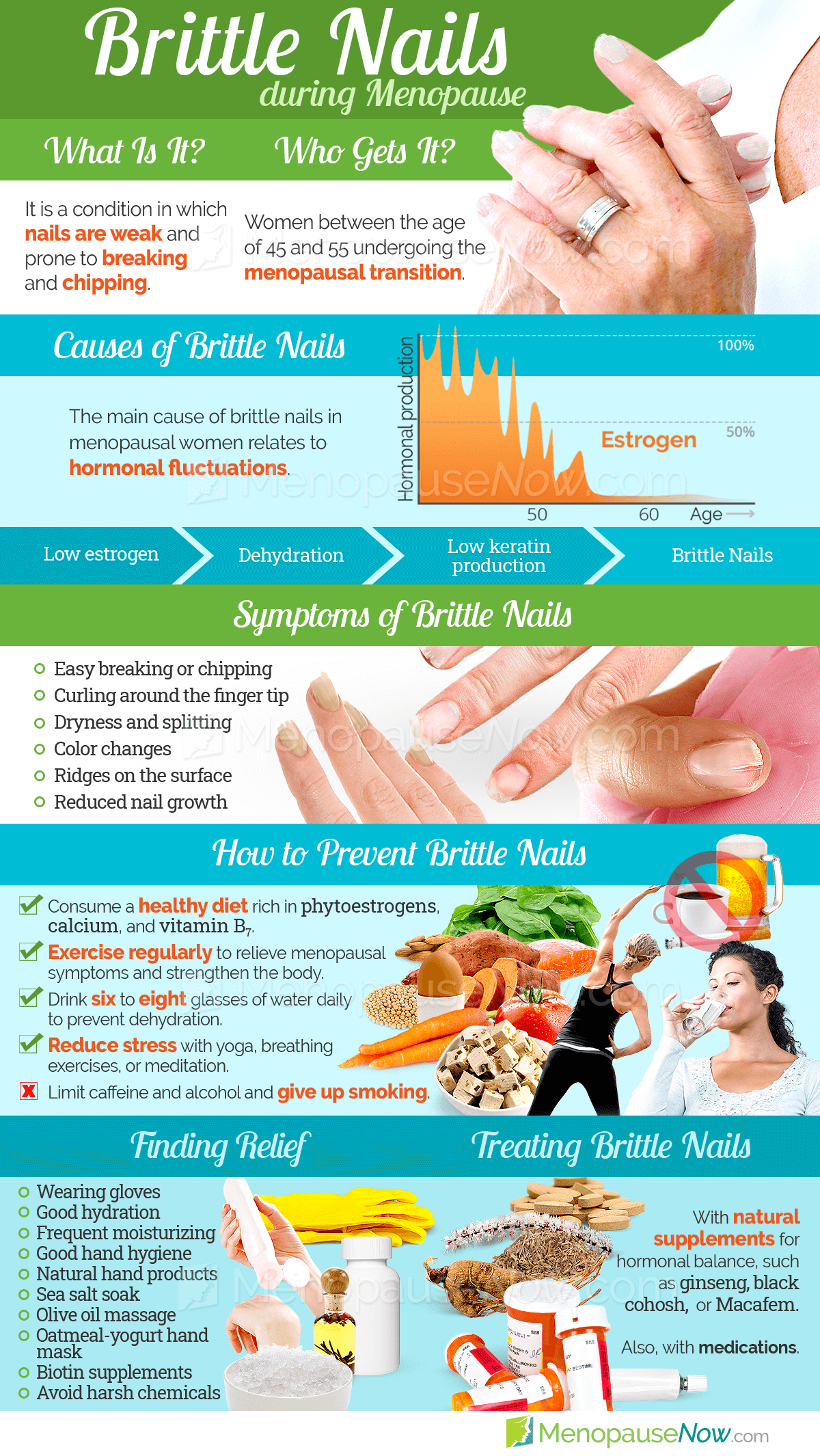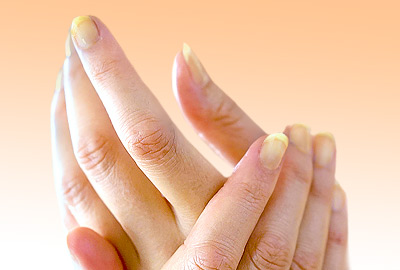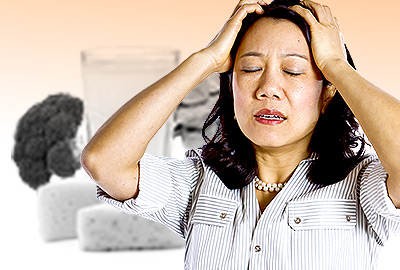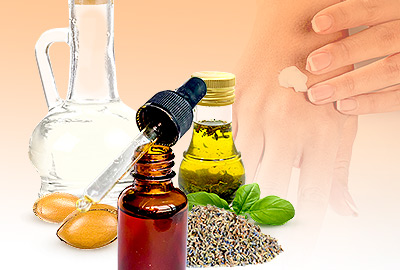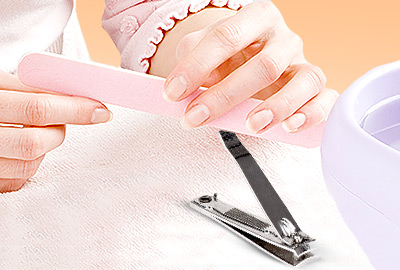Did You Know?
Nails grow faster on the hand that is used more frequently.
Of all the symptoms of menopause, cosmetic changes can at times be the hardest to deal with. Unfortunately, during this time period, many women suffer from brittle nails, which occur naturally with age and hormonal changes.
Read below to learn more about this common symptom, its characteristics, causes, and possible treatment options in order to restore nails back to their former strength.
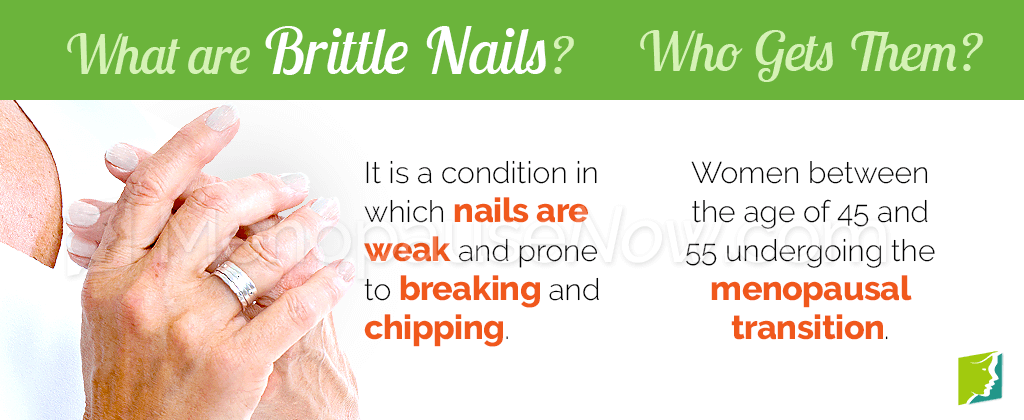
About Brittle Nails
How nails grow
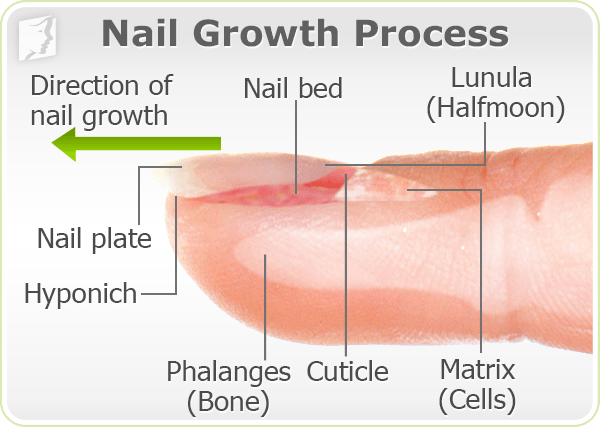
To understand how brittle nails occur, it is helpful to learn more about the nail growth process. Both fingernails and toenails grow from roots underneath the skin, from the thin white semicircle at the base of the nail known as the lunula. This group of cells produces a compound called keratin, which forms the nails that protect the fragile nail beds.
When the body is healthy, a woman's nails will grow with uniformity and strength. However, if nails are brittle, cracked, or there are changes in color, this can be an indication of imbalance or illness that is throwing off keratin production.
Characteristics of brittle nails
If a woman has always had strong, healthy nails, she may not recognize the signs of brittle nails. The image to the right indicates the most common symptoms.
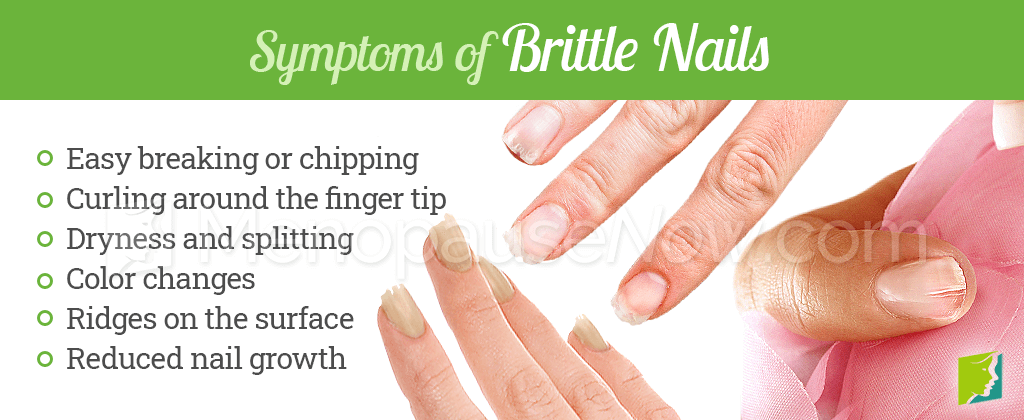
Keep reading to learn more about the possible causes of brittle nails in menopausal women in order to learn how to strengthen them and manage this symptom.
Causes of Brittle Nails
Hormonal causes
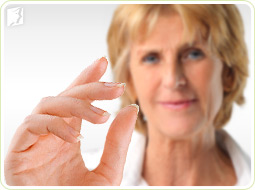
While changes in nail appearance, such as brittle nails, can occur for a variety of reasons, the most likely cause for women of menopausal age is hormone fluctuations. Changes in the nails have been observed in women going through the menopause, leading medical professionals to believe there is a link between fluctuations in estrogen levels and brittle nails.
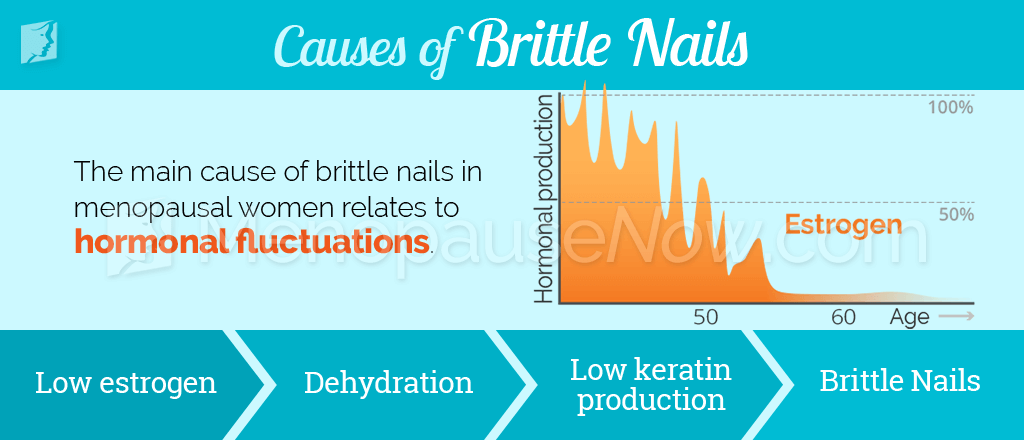
Other Causes
Diseases That May Cause Brittle Nails
- Anemia
- Poor circulation
- Infection
- Liver disease
- Thyroid problems
Along with hormonal causes, dietary issues and certain diseases can have an effect on nail growth. Certain nutrients - such as vitamin C, calcium, folic acid, protein, iron, and fat - help to build strong healthy nails. Stress and anxiety can also slow nail growth and lead to weak or brittle nails.
Fortunately, restoring nail health is relatively easy. Read below to learn more about treatment options for brittle nails.
Brittle Nails Treatments
Did You Know?
Foods rich in calcium - like almonds, beans, and spinach - can help restore nail health.
In order to best manage this symptom, it is necessary to examine the different treatment options available. Because nail health involves both nutritional deficiencies as well as hormonal changes for menopausal women, there are two levels that the issue may need to be addressed.
It is generally recommended that women begin with the least invasive option, which would be lifestyle changes. If brittle nails are due to stress or poor nutrition, eating a balanced diet rich in protein, unsaturated fat, and vitamin C can be extremely beneficial. Stress reduction techniques such as yoga or meditation can also help.
Lifestyle changes can be difficult to implement all at once for a busy woman, however. The most effective approach - since brittle nails in menopausal women is primarily caused by fluctuating levels of estrogen that leads to dehydration - is to treat the problem directly at the source. A variety of natural and alternative remedies exist that are able to address this imbalance. For many, a combination of lifestyle changes and alternative medicine is the most effective and safest way to battle brittle nails.
If a woman is experiencing other symptoms that may be indicative of a more serious issue, consulting a trusted medical professional is recommended. Discolorations or split nails, for example, can be signs of a more serious condition.
Most experts recommend that women who suffer from brittle nails and wish to treat the symptom begin with lifestyle changes, then move onto alternative medicine, and finally, look to medications if nothing else is effective. Click on the following link to learn specific treatments for brittle nails in these three categories.
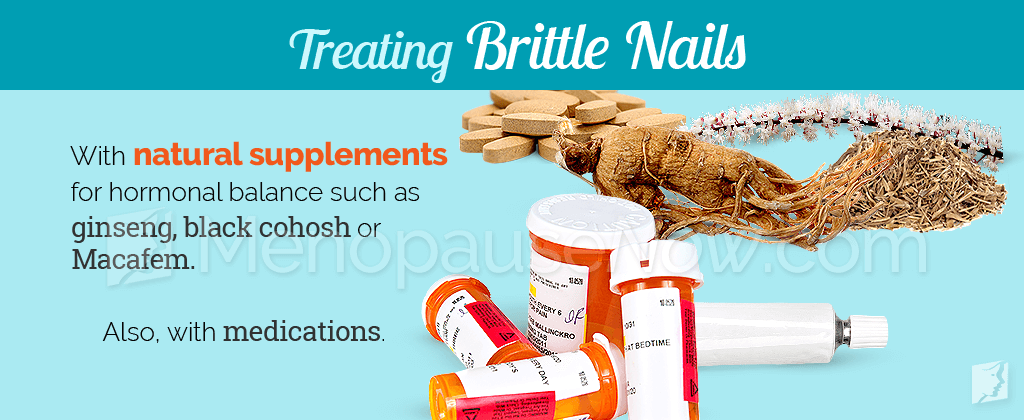
Sources
- Iorizzo, M. et al. (2004). Brittle nails. Journal of Cosmetic Dermatology, 3(3), 138-144. Retrieved from http://www.ncbi.nlm.nih.gov/pubmed/17134428
- National Institutes of Health. (2015). Nail abnormalities. Retrieved April 26, 2016, from https://www.nlm.nih.gov/medlineplus/ency/article/003247.htm
- University of Maryland Medical Center. (2014). Nail disorders. Retrieved April 26, 2016, from http://umm.edu/health/medical/altmed/condition/nail-disorders
- U.S. Department of Health and Human Services. (n.d.). 18 Ways Smoking Affects Your Health. Retrieved April 26, 2016, from http://smokefree.gov/health-effects

